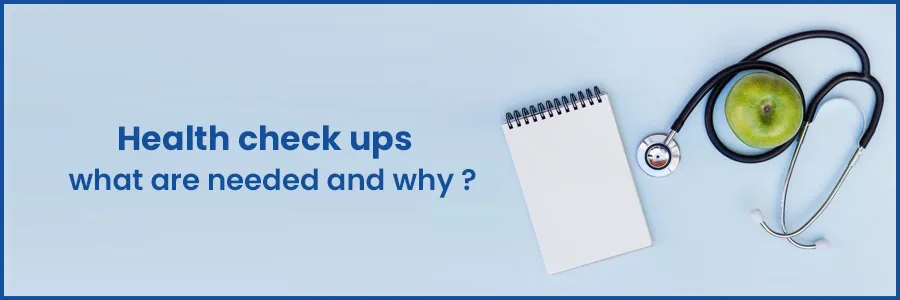The Importance of Health Check-Ups: What You Need to Know

Your most precious asset is your health; regular health checkups are essential to maintaining it. These proactive appointments offer more than just a routine visit to the doctor; they play a pivotal role in preventing, detecting, and managing potential health issues. This blog explores why health checkups matter, what they entail, and how they can empower you to lead healthier and happier lives.
The Significance of Health Checkups:
Early Detection and Prevention
Health checkups allow early detection of health problems, often before symptoms manifest. Early problem detection enables early action and raises the likelihood of effective therapy.
Personalized Wellness
Checkups allow healthcare professionals to tailor advice and recommendations based on your health profile. This personalized approach empowers you to make informed decisions about your well-being.
Disease Management
Regular checkups are essential for those with chronic diseases to track the disease's development, modify treatment regimens, and avoid complications.
What to Expect During a Health Checkup:
Comprehensive Assessment
A health checkup typically includes the following:
- A thorough physical examination.
- Measurement of vital signs (blood pressure, heart rate, etc.).
- Discussions about your medical history and lifestyle.
Diagnostic Tests:
Depending on your age, risk factors, and medical history, your doctor may recommend specific diagnostic tests such as blood tests, cholesterol checks, cancer screenings, and imaging studies.
Vaccinations and Preventive Measures:
Updates on immunizations, suggestions for maintaining a good diet and exercise routine, and advice on stress reduction and mental health are frequently included in health checkups.
How Often Should You Get a Health Checkup?
The frequency of health checkups varies based on age, gender, medical history, and risk factors. Generally, adults should aim for an annual checkup, while individuals with specific health concerns may require more frequent visits.
Taking Charge of Your Health:
- Prioritize Prevention
- Open Communication
- Establishing Baselines
Regular checkups shift the focus from treating illness to preventing it. Embracing preventive measures can improve health outcomes and a higher quality of life.
Use regular checkups to freely share concerns about your health or any changes with your doctor. You will obtain the highest calibre of treatment if there is effective communication.
Consistent checkups establish baseline health data, allowing healthcare professionals to detect deviations and trends that may warrant further investigation.
Conclusion:
Health checkups are routine appointments and proactive investments in your health and well-being. By prioritizing regular checkups, you empower yourself to take charge of your health, detect potential issues early, and make informed choices for a healthier and happier life. Remember, your health journey begins with a single step – scheduling that essential health checkup today.
